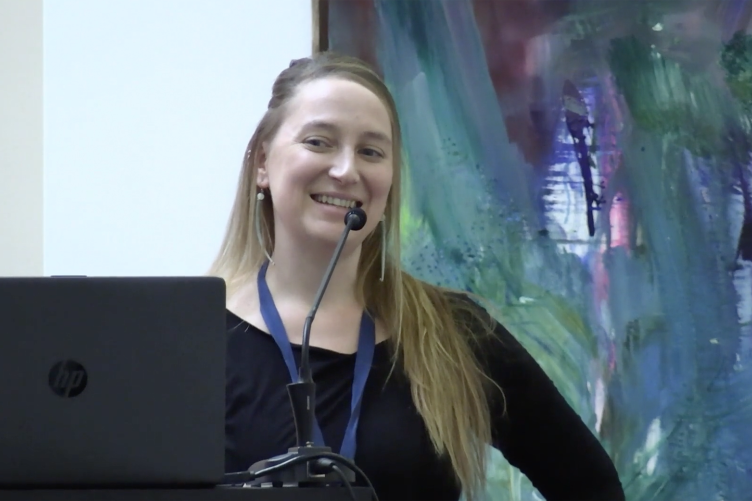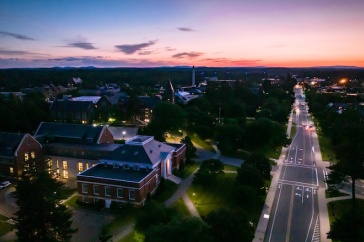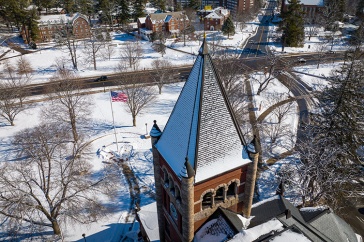
Assistant Professor Michelle Fournet in Dresden, Germany at one of the Kavli Fellow symposia
Michelle Fournet, marine acoustic ecologist, assistant professor in the department of biological sciences and affiliate faculty member for the UNH Center for Acoustics Research and Education, was recently named a 2023 National Academy of Sciences (NAS) Kavli Frontiers of Science Fellow, an honor that includes an invitation to attend one of three Kavli Frontiers of Science symposia.
The three-day events bring together scientists who are 45 or younger to share exceptional research and ideas across variety of disciplines and network with other young researchers who have already made recognized contributions to science. NAS selected 118 of the nation’s most outstanding young scientists from industry, academia and government to participate.
“My work skirts the boundaries of applied and basic science. It can be difficult to contextualize how and why I study communication, and more so why I study communication in whales,” Fournet says. “To have the NAS highlight this work as valuable and interesting was extremely flattering.”
More than 6,200 young scientists have participated in the symposia since the program’s founding in 1989. To date, 323 participants have been elected to the NAS and 18 have been awarded the Nobel Prize.
Fournet was one of five American researchers invited to speak at the Japanese-American-German symposium, which was held October 5 – 8 in Dresden, Germany and was co-organized by the Alexander von Humboldt Foundation. The sessions focused on animal linguistics: origins and evolution of language; environmental humanities; high-resolution global modeling for weather and climate; the James Webb Space Telescope: from exoplanets to dark energy and the expanding universe; explainable and robust machine learning; and quantum science and technology. Fournet opened the symposium session on animal linguistics with an introductory talk titled “Some Things Never Change: An Ethological Approach to Investigating the Origins of Humpback Whale Vocal Behavior.”
Fournet looks forward to inviting the researchers she met at the symposium to UNH and says she’s already working on implementing some of the new ideas she picked up at the symposium into her own work.
“The goal is to encourage bright minds from around the world to interact and share ideas and cultures and push the boundaries of the cutting edge of science and the symposia are known for generating high-profile international collaborations,” she notes. “The experience was extraordinary.”
-
Written By:
Sarah Schaier | College of Life Sciences and Agriculture


















































